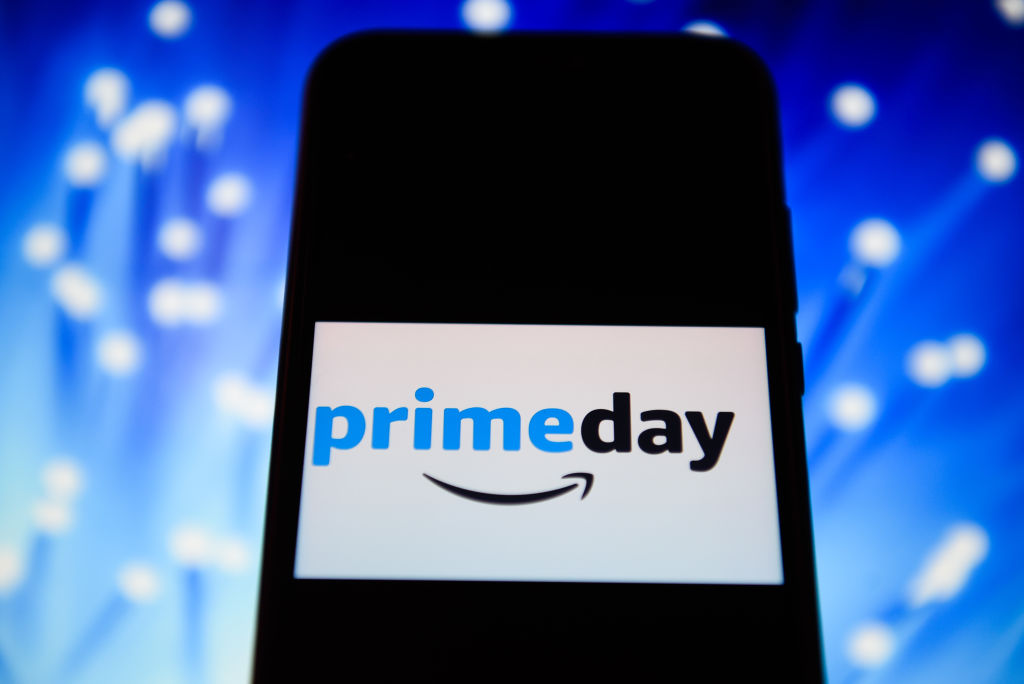Why You Can't Trust Online Reviews
Online ratings services are for-profit businesses that sell ads to the same local companies their users review—a potential conflict of interest.

Profit and prosper with the best of Kiplinger's advice on investing, taxes, retirement, personal finance and much more. Delivered daily. Enter your email in the box and click Sign Me Up.
You are now subscribed
Your newsletter sign-up was successful
Want to add more newsletters?

Delivered daily
Kiplinger Today
Profit and prosper with the best of Kiplinger's advice on investing, taxes, retirement, personal finance and much more delivered daily. Smart money moves start here.

Sent five days a week
Kiplinger A Step Ahead
Get practical help to make better financial decisions in your everyday life, from spending to savings on top deals.

Delivered daily
Kiplinger Closing Bell
Get today's biggest financial and investing headlines delivered to your inbox every day the U.S. stock market is open.

Sent twice a week
Kiplinger Adviser Intel
Financial pros across the country share best practices and fresh tactics to preserve and grow your wealth.

Delivered weekly
Kiplinger Tax Tips
Trim your federal and state tax bills with practical tax-planning and tax-cutting strategies.

Sent twice a week
Kiplinger Retirement Tips
Your twice-a-week guide to planning and enjoying a financially secure and richly rewarding retirement

Sent bimonthly.
Kiplinger Adviser Angle
Insights for advisers, wealth managers and other financial professionals.

Sent twice a week
Kiplinger Investing Weekly
Your twice-a-week roundup of promising stocks, funds, companies and industries you should consider, ones you should avoid, and why.

Sent weekly for six weeks
Kiplinger Invest for Retirement
Your step-by-step six-part series on how to invest for retirement, from devising a successful strategy to exactly which investments to choose.
Q. My friend says that some of my favorite online ratings services—with user reviews of restaurants, stores and local service providers—are tainted by a variety of unethical practices, such as fake reviews and favoritism toward firms that advertise on the sites. Is she right?
A. I’m afraid so, based on the number of complaints and lawsuits surrounding online ratings services. That’s why you should take all user reviews with many grains of salt.
Here are a few of the unethical practices seen in this burgeoning Web industry:
From just $107.88 $24.99 for Kiplinger Personal Finance
Become a smarter, better informed investor. Subscribe from just $107.88 $24.99, plus get up to 4 Special Issues

Sign up for Kiplinger’s Free Newsletters
Profit and prosper with the best of expert advice on investing, taxes, retirement, personal finance and more - straight to your e-mail.
Profit and prosper with the best of expert advice - straight to your e-mail.
-- Small businesses have paid strangers to write glowing reviews with no basis in customer experience (in other words, outright fraud). Others have swayed customers with discounts for posting a positive review (a gentle bribe).
-- Businesses have paid people to post negative reviews of their competitors.
-- Small businesses have been strong-armed by Web sites’ ad-sales staff, who hint that paying for ads will induce the site to hide negative reviews and/or give advertisers favored positioning in search results.
The online ratings firms say that their sophisticated software can reliably filter out bogus user reviews (an unverifiable claim). They also deny that their employees use promises or threats to persuade local businesses to advertise with them.
But these service-review sites are all young, for-profit businesses whose success is primarily based on selling advertising to the same local companies that their users review—a potential conflict of interest.
There is no nationwide, nonprofit ratings site for local services, supported entirely by subscribers and carrying no advertising—that is, nothing analogous to what Consumer Reports magazine does for national products. However, the nonprofit Consumers’ Checkbook magazines and Web site do this for local services (but not restaurants) in seven metro areas: Boston, Chicago, Minneapolis/St. Paul, Philadelphia/Wilmington, San Francisco, Seattle and Washington. And the many nonprofit Better Business Bureaus—whose ratings are based on a firm’s adherence to the BBB code and their record of resolving customer complaints well—are beginning to edge into reviews, too.
Have a money-and-ethics question you’d like answered in this column? Write to editor in chief Knight Kiplinger at ethics@kiplinger.com.
Profit and prosper with the best of Kiplinger's advice on investing, taxes, retirement, personal finance and much more. Delivered daily. Enter your email in the box and click Sign Me Up.

Knight came to Kiplinger in 1983, after 13 years in daily newspaper journalism, the last six as Washington bureau chief of the Ottaway Newspapers division of Dow Jones. A frequent speaker before business audiences, he has appeared on NPR, CNN, Fox and CNBC, among other networks. Knight contributes to the weekly Kiplinger Letter.
-
 The New Reality for Entertainment
The New Reality for EntertainmentThe Kiplinger Letter The entertainment industry is shifting as movie and TV companies face fierce competition, fight for attention and cope with artificial intelligence.
-
 Stocks Sink With Alphabet, Bitcoin: Stock Market Today
Stocks Sink With Alphabet, Bitcoin: Stock Market TodayA dismal round of jobs data did little to lift sentiment on Thursday.
-
 Betting on Super Bowl 2026? New IRS Tax Changes Could Cost You
Betting on Super Bowl 2026? New IRS Tax Changes Could Cost YouTaxable Income When Super Bowl LX hype fades, some fans may be surprised to learn that sports betting tax rules have shifted.
-
 21 Last-Minute Gifts for Grandparents Day 2025 to Give Right Now
21 Last-Minute Gifts for Grandparents Day 2025 to Give Right NowHoliday Tips Last-minute gifting is never easy. But here are some ideas to celebrate Grandparents Day.
-
 Texas Sales Tax-Free Weekend 2025
Texas Sales Tax-Free Weekend 2025Tax Holiday Here's what you needed to know about the Texas sales tax holiday.
-
 Alabama Tax-Free Weekend 2025
Alabama Tax-Free Weekend 2025Tax Holiday Here’s everything you need to know about the 2025 back-to-school Alabama sales tax holiday.
-
 The Sweet 23: States Where Twix and Kit Kat Avoid the ‘Candy Tax’
The Sweet 23: States Where Twix and Kit Kat Avoid the ‘Candy Tax’State Taxes There’s something spooky this Halloween, and it’s not just the ghouls. Find out if your state’s sales tax takes a bite out of sweet savings.
-
 Florida Back-to-School Tax-Free Holiday 2025
Florida Back-to-School Tax-Free Holiday 2025Sales Taxes The new tax-free holiday in Florida brought month-long savings on computers, clothing and other school supplies.
-
 Five Reasons You Shouldn't Shop Amazon's Prime Big Deal Days
Five Reasons You Shouldn't Shop Amazon's Prime Big Deal DaysSmart Buying Are Amazon Prime Big Deal Days still a good deal? We'll break it down.
-
 Romance Scams to Beware — Signs of a Scammer at Work
Romance Scams to Beware — Signs of a Scammer at WorkPeople seeking love and connection are attractive targets for fraudsters. Avoid these romance scams that prey on your best intentions.
-
 Best Cash Back Credit Cards
Best Cash Back Credit CardsCredit Cards If you're searching for a credit card that rewards you for everyday purchases, we've chosen the best.